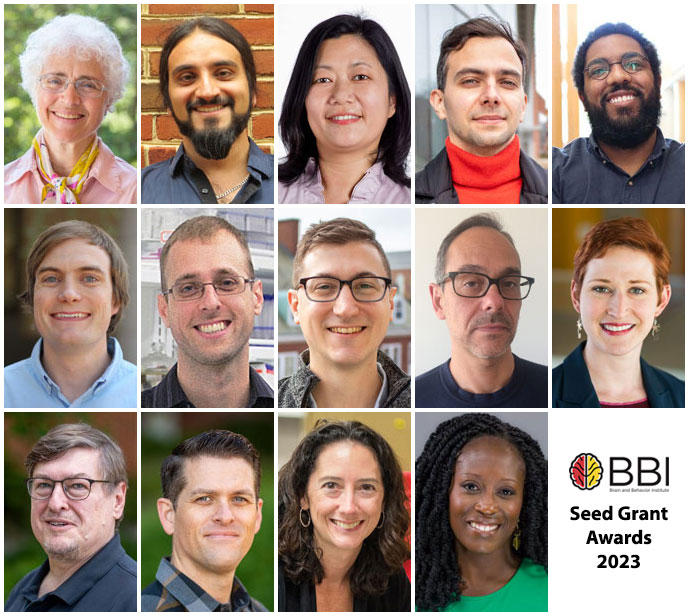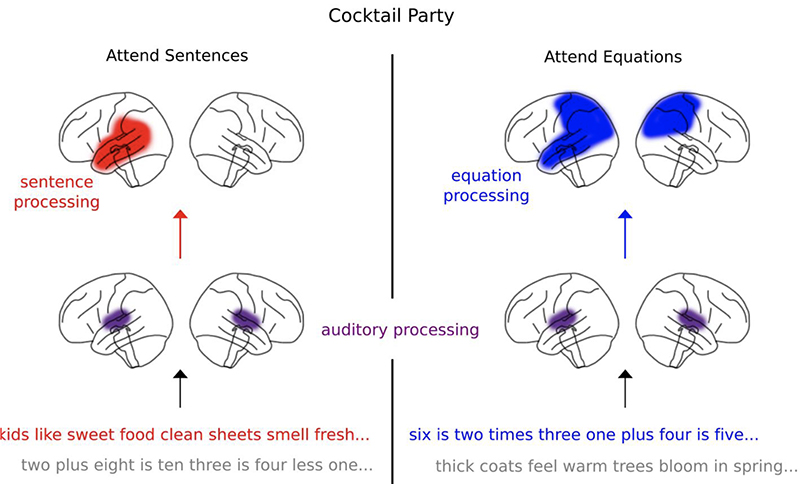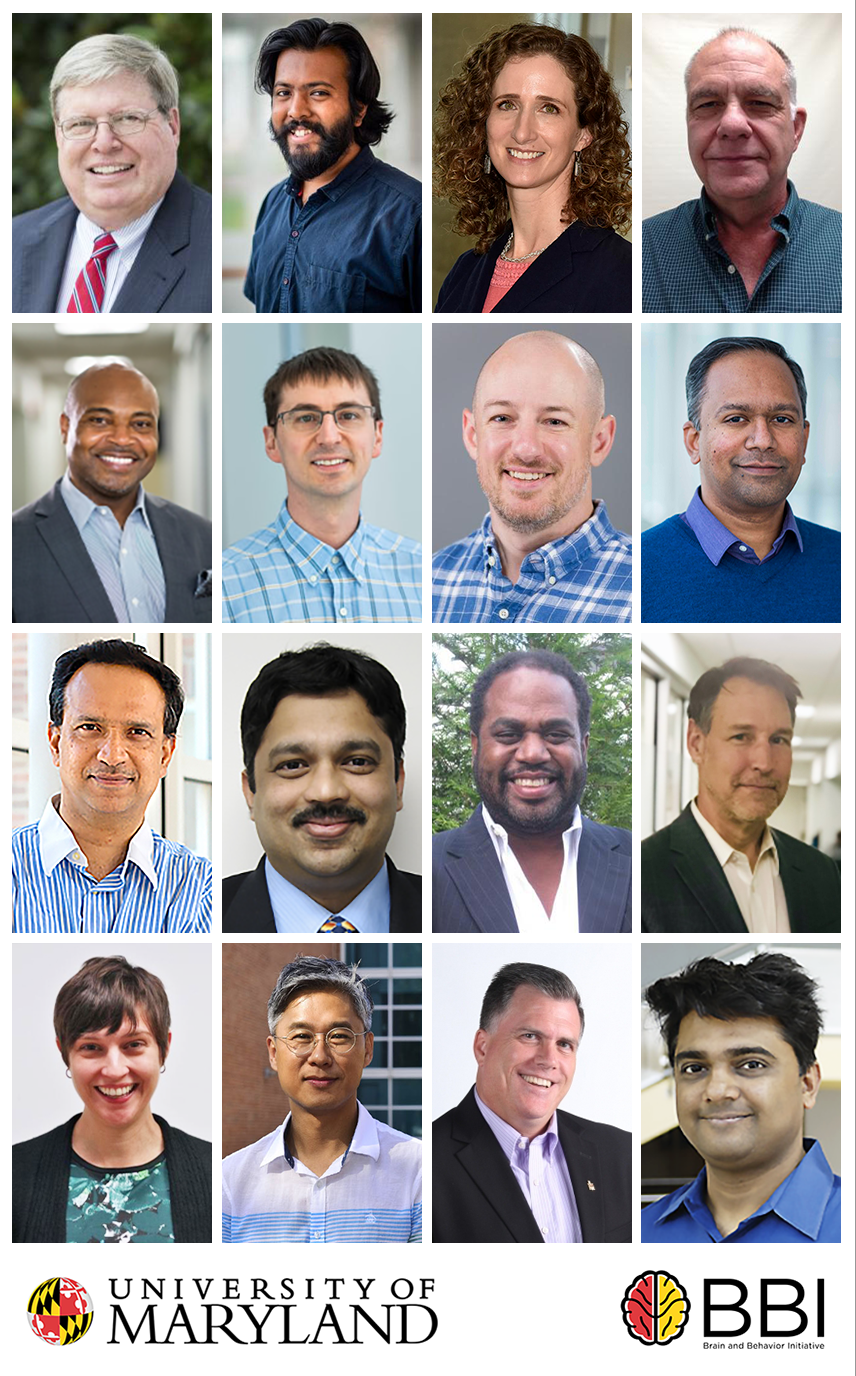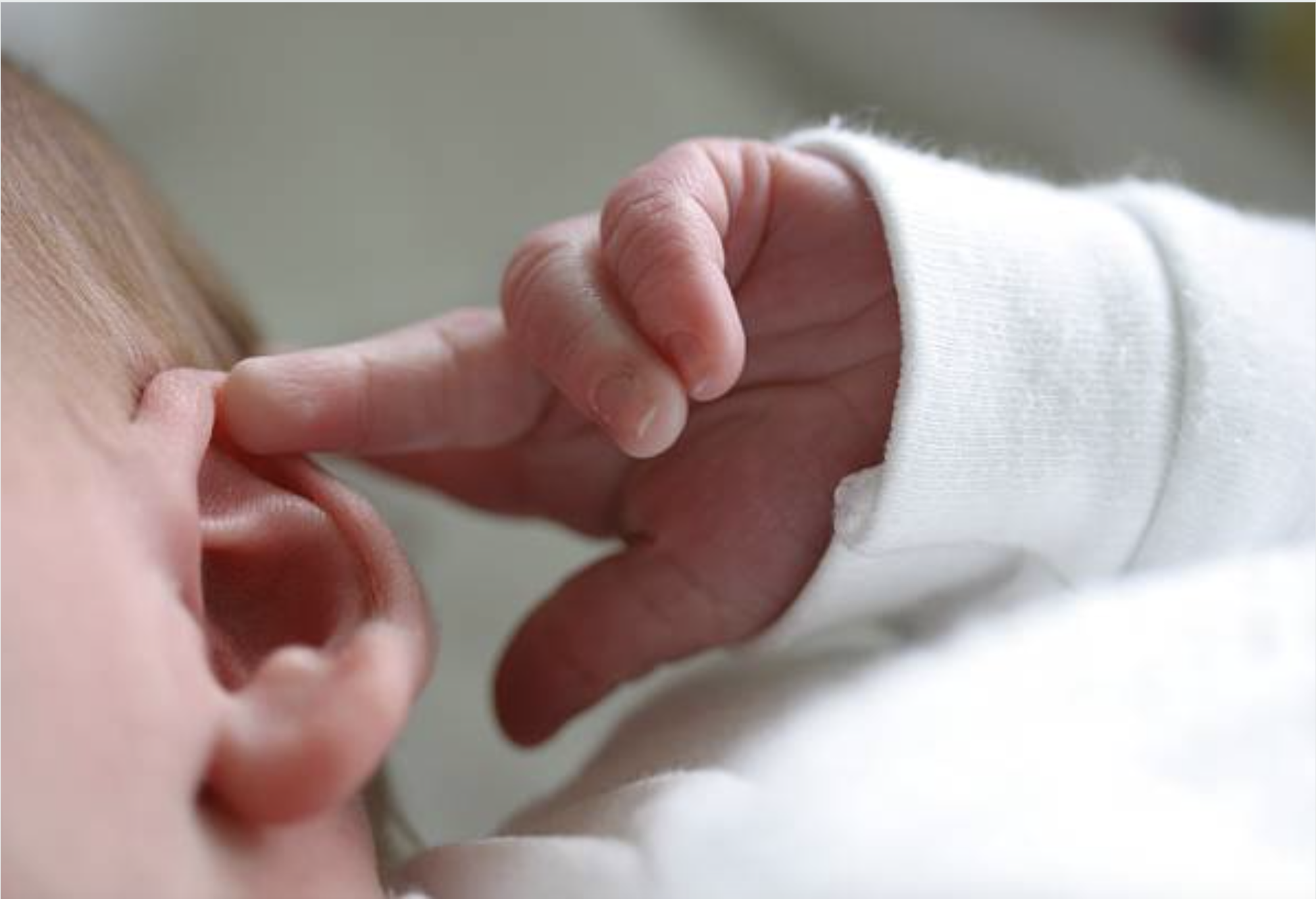News Story
The BBI Welcomes New Faculty Hires
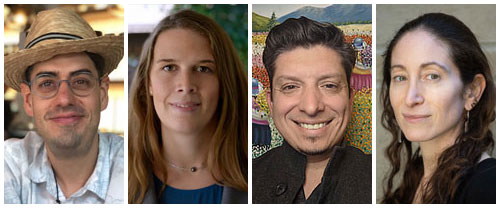
Juan Angueyra, Caroline Charpentier, Pablo Paredes and Elizabeth Schechter.
Genetic tools to track photoreceptor growth in zebrafish; computational methods for studying social influences on risk-taking and decision-making; haptic cues embedded in furniture to guide stress reduction; data analyses for investigating the unity of consciousness.
These are a few the approaches employed by new faculty joining the University of Maryland this academic year whose research focuses on the brain and behavior. The expertise of Juan Angueyra, Caroline Charpentier, Pablo Paredes and Elizabeth Schechter expands interdisciplinary neuroscience research with translational promise at UMD.
“These new faculty bring expertise in early circuit development, the development of identity, and in processes that can be affected by age, including decision-making and emotional health,” said Elizabeth Quinlan, professor in the Department of Biology, Clark Leadership Chair in Neuroscience and director of the Brain and Behavior Institute (BBI). “I am thrilled to welcome Juan, Caroline, Pablo and Elizabeth to campus, and I look forward to supporting their growth and success.”
Angueyra and Charpentier join Nikolas Francis as the latest joint hires between the BBI and partner disciplines.
Juan Angueyra
Juan Angueyra starts at the University of Maryland in January 2023 with dual appointments in the Department of Biology and the Brain and Behavior Institute. His research is focused on a fundamental question of brain development: How do cells acquire specific fates and make the correct connections? Angueyra uses genetic tools to track the fate decisions of retinal cells in zebrafish. His work examines both how a cell becomes a photoreceptor and how photoreceptors make connections with the retina, focusing on the mechanisms underlying specificity in synapse formation between photoreceptor subtypes and their postsynpatic targets. Angueyra comes to UMD from the National Eye Institute at the National Institutes of Health, where, as a Postdoctoral Fellow mentored by Wei Li and Katie Kindt, he identified the transcription factors that determine photoreceptor identity. Angueyra earned his Ph.D. in physiology and biophysics from Fred Rieke’s laboratory at the University of Washington. Prior to his move to basic science, Angueyra trained as a physician, earning an M.D. at the Universidad Nacional de Colombia, Bogotá, Colombia. His research began with Enrico Nasi and Maria Gómez in the Marine Biology Laboratory at Woods Hole.
“I have interacted and worked with a number of researchers at UMD in the past,” said Angueyra, “and I am very excited to join that excellent community of science, particularly UMD’s strong sensory neuroscience community. The possibility for collaborations with experts in computational and behavioral neuroscience is almost endless, to say nothing of the many labs that study other fish species. UMD also presents the perfect opportunity to train the next generation of diverse and responsible scientists, which is one of my personal missions.”
Caroline Charpentier
Caroline Charpentier arrives at UMD in August 2023 as an assistant professor with dual appointments in the Department of Psychology and the Brain and Behavior Institute. Charpentier’s research seeks to understand the behavioral, computational and neural mechanisms by which affective and social influences are integrated during human learning and decision-making. Taking place at the interface between computational and social neuroscience, her work builds models to dissect the algorithms through which people learn and make choices and then tests their predictions via behavioral experiments and functional neuroimaging. In the near-term, her research will employ fMRI to characterize variability in decision-making among those on the autism spectrum and enlist computational modeling to understand the development of impaired decision-making among conspiracy theorists. Charpentier comes to UMD from the California Institute of Technology, where she was a Senior Postdoctoral Scholar Research Associate in Neuroscience supported by a K99 award from the National Institute of Mental Health. Prior to that, her research received funding from the Sir Henry Wellcome Postdoctoral Fellowship at University College London. Charpentier earned her Ph.D. in cognitive neuroscience at University College London in 2016 and her bachelor’s in fundamental biology from Ecole Normale Supérieure in Lyon, France.
“I was drawn to the University of Maryland in particular because of the psychology community,” said Charpentier, “especially the opportunities to bridge social, developmental and clinical research areas. My interests—including social neuroscience, computational psychiatry and behavioral economics—are broad and interdisciplinary, so I am always seeking to collaborate. In general, I thrive when working in a team rather than simply doing my own thing in isolation. I look forward to doing so at UMD.”
Pablo Paredes
Pablo Paredes joins UMD as an assistant professor of in the Department of Computer Science. His research leverages human-computer interaction, data science, and human-centered artificial intelligence to design creative solutions based on scientific foundations to promote wellbeing. In particular, his work focuses on just-in-time interventions that balance efficacy and engagement for everyday stress management to promote wellbeing and mental health and on passive sensing, an adaptive approach that repurposes data from existing devices or data extracted from existing sensors embedded in everyday objects to measure stress. Passive sensing may be especially beneficial for identifying emotional strain and declines in cognition among older adults, and subtle haptic feedback can be employed therapeutically for patients suffering from age-related sensorimotor deficits. Prior to arriving at Maryland, Paredes was a Clinical Assistant Professor in the Psychiatry and Behavioral Sciences Department at Stanford University School of Medicine. Paredes earned his PhD in Computer Science from the University of California, Berkeley in 2015 where, during his PhD career, he held internships on behavior change and affective computing in Microsoft Research and Google.
Elizabeth Schechter
Elizabeth Schechter joins the UMD as an associate professor in the Department of Philosophy. Her work centers on questions of psychological unity, such as whether and in what sense we assume we are unified and to what extent science reveals us to be disunified. These questions bear on a number of traditional philosophical concerns—including personal identity, self-knowledge and the unity of consciousness—and Schechter’s analysis of the split-brain phenomenon and interventions into so-called unity debates (about whether a mere hemisphere of the brain alone can see, speak, feel and know) has broad import for research in early childhood development. Her monograph, Self-Consciousness and “Split” Brains: The Minds’ I, was published by Oxford University Press in 2018. Prior to starting at UMD, Schechter was an Associate Professor in the Department of Philosophy at Indiana University, Bloomington and an Assistant Professor in the Philosophy-Neuroscience-Psychology program at Washington University in St. Louis. She earned her Ph.D. from the University of Maryland and her B.A. at Vassar College.
Published September 12, 2022

